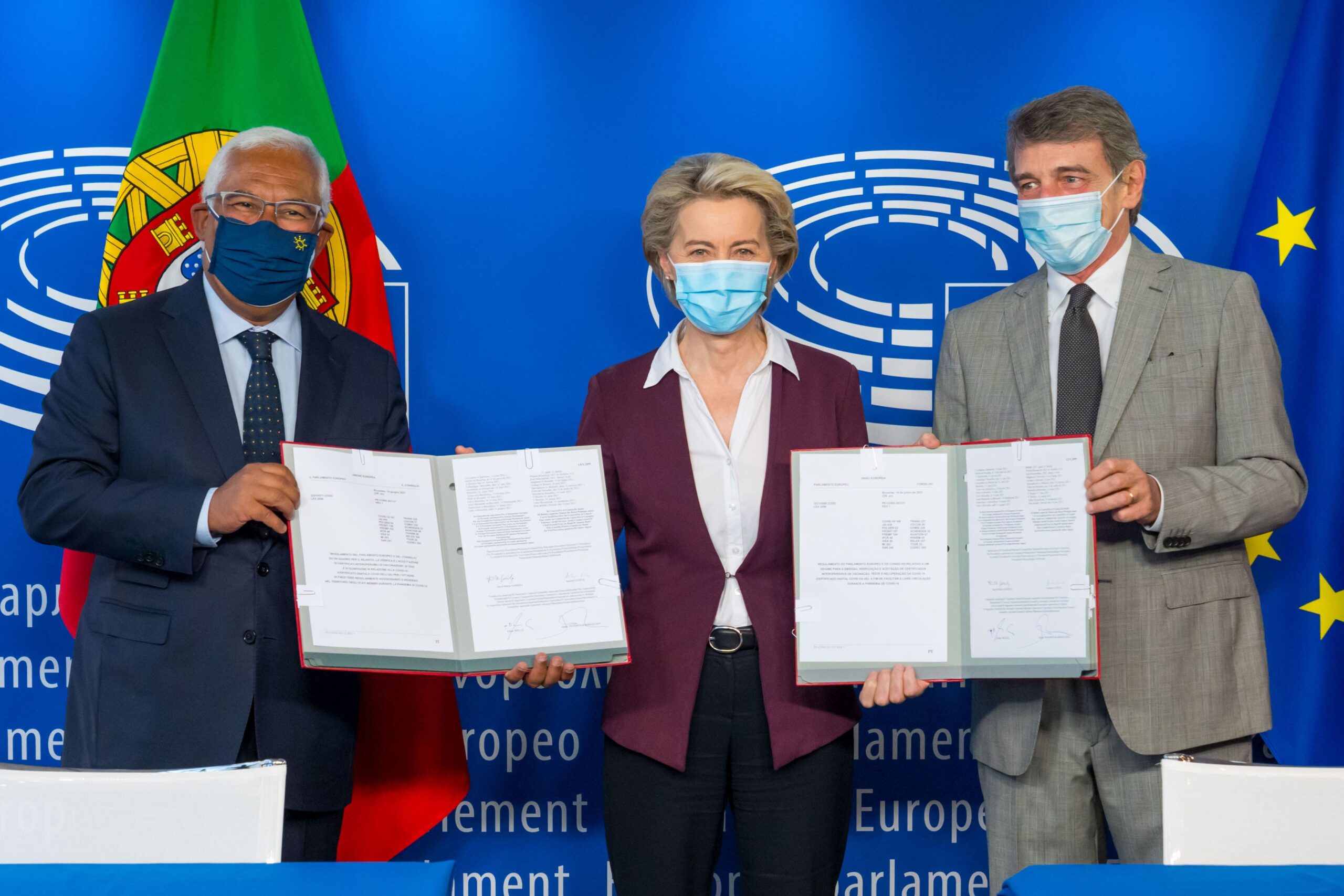
Although Covid-19 passes and health certificates have received a mixed response from members of the public across the globe, with some feeling that their rights are being restricted, many companies and organisations have created their own.
Usually taking the form of an app or QR code these passes allow verified information surrounding the individual’s Covid-19 status to be identified, such as their vaccination status or test history.

Discover B2B Marketing That Performs
Combine business intelligence and editorial excellence to reach engaged professionals across 36 leading media platforms.
These passports offer a recognised form of health data information which not only allows individuals to travel, but provides airport staff with a means of verifying health data, which is critical to ensure that potential Covid-19 transmission is minimised.
The introduction of the EUDCC aims to remove travel restrictions, quarantine obligations and testing for EU citizens.
Concept to construction
Initially proposed by the European Commission on 14 March 2021, the certificate has experienced various name changes between its initial announcement and its final provisional agreement on 20 May 2021. Alongside the name changes the certificate transitioned from a commission proposal to a new law.

US Tariffs are shifting - will you react or anticipate?
Don’t let policy changes catch you off guard. Stay proactive with real-time data and expert analysis.
By GlobalDataWhile parliament pushed its agenda for the certificate to be about restoring the freedom of movement for EU citizens, member states fought back, demanding strong discretionary components such as the use of an emergency break if there is a sudden rise of infections in another member state.
On 14 June a joint statement – issued by the three EU institutions; the commission, council, and parliament – was released, stressing that the certificate is being introduced to enable EU citizens freedom of movement. EU member states also agreed to non-binding recommendation which could limit potential restrictions for individuals who cannot prove immunity or who have travelled from a high-risk location.
How does it work?
So, what is the certificate and how does it work? Entering application on 1 July 2021, the EUDCC provides EU citizens and residents with their own digital Covid-19 certificates which have been issued and verified across the EU. The certificate provides digital proof that the individual has either been fully vaccinated against Covid-19, received a negative test, or recovered from Covid-19.
Speaking on the launch of the certificate in a press release, European Commission President Ursula von der Leyen said: “The European Union is delivering for its citizens, we are helping Europeans get back the freedom they value and cherish so much.”
The format
The certificate is available in a digital or paper format which comes with a scannable QR code which contains a digital signature to protect it against falsification, the certificate is also free of charge and is valid in all EU countries. National authorities – such as health authorities or test centres – have been placed in charge of issuing certificates to EU citizens, which can be stored on their mobile device if the digital format is requested.
One of the driving forces for the certificate’s introduction was to facilitate free movement, allowing EU Member States to ensure that individuals they are allowing through their borders comply with an EU recognised standard when it comes to Covid-19 protocol.
The certificate will also allow EU citizens to travel to another EU country even if they are not yet vaccinated, due to the certificate allowing test results to be shown. This decision highlights the importance of free movement as a fundamental right for those within the EU.

Member states are at present not legally obligated to implement the certificate; however, all states are in the process of introducing it into their systems. Each member state will still be able to impose its own restrictions on travellers from other EU countries; however, if this is the case the commission and other member states must be informed as to which measures are being put in place.
Feedback from the industry
Although the certificate brings with it many benefits from individuals being able to travel to airports and being provided with an EU recognised form of health identification – the certificate has been igniting some concerns within the industry.
Following the certificate launch, Europe’s air travel industry – a group representing Europe’s largest airlines and airports – expressed that they felt the plan for the certificate is still “fragmented.” Following on from this, a letter of warning was sent to the EU leaders, signed by airport groups such as Airports Council International Europe, International Aviation Transport Association, European Regions Airline Association, and others.
Part of the statement read as follows: “Certificate verification will undermine smooth summer travel for EU passengers. As passenger traffic increases in the coming weeks, the risk of chaos at European Airports is real. Duplicate checks and lack of verification tools provided to airlines will cause unnecessary airport queues and longer processing times if not addressed by the Member States.”
Current issues
One prominent issue which is currently surrounding the certificate is the number of vaccinations the individual has had. If the individual has had only one vaccine so far this will be registered on the certificate; however, whether this will be sufficient for them to evade quarantine on their arrival depends on the member states current guidelines. Likewise, on arrival the member state could insist that the individual take a test before leaving the airport, regardless of whether they have already registered a negative test on their certificate.
Even though the certificate has been launched and is currently being used by EU travellers it is still experiencing some technical issues which have been raised by numerous airlines. Airlines have stated that appropriate check-in equipment has not been available for them to scan the passenger’s certificates, and that even when they do have scanning equipment the QR is not always recognised. This has been reported to be down to the destination country still applying Covid-19 restrictions regarding the location the tourist has come from.
With the certificate still being in its early days of application, it is hoped that over time the issues and concerns raised by the industry are resolved, allowing ‘free movement’ within the EU for travellers.





